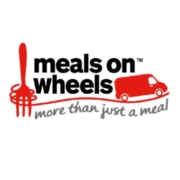Catering for the future of our vulnerable people
The NACC is a member organisation that represents individuals and organisations responsible for, and associated with, catering provision within care environments and services. You may know us best for our recent ongoing campaign to protect the essential UK Meals on Wheels service, although we also provide comprehensive advice, best practice guidance, training and resources for a wide variety of topics and issues relevant to care catering.
The Meals on Wheels service, which caters for the old and vulnerable, in their own homes and at day centres, offers a valuable service that strives to make life easier and happier for those living independently in our communities.
We believe that Meals on Wheels is crucial. However, this non-statutory service is currently struggling to be effective as a result of recent budget cuts; potentially, this could have serious mental and physical consequences for the most vulnerable in our society. In response, we’re asking local authorities to view this service as vital and to save it from the cuts. We also want the government to intervene and make Meals on Wheels a statutory responsibility across the country.
Meals on Wheels is so much more than a simple meal; for many, it’s a social lifeline that eases the devastating isolation and loneliness that, sadly, many of the elderly in our society endure. Delivering daily meals brings regular human contact, which may be the only interaction these people experience in their day-to-day lives. Not only interaction, the Meals on Wheels driver can provide essential help when they encounter someone who is weak, sick, cold or distressed, with no-one else to turn to. The drivers are sometimes the only person to visit the older person’s home and so they perform health and well-being checks, notifying health workers if any problems arise. Many times, a driver has found an elderly person has fallen at home, unable to get back up. They are able to call an ambulance for the person and therefore prevent them from potentially lying on the ground for days.
The service enables those who are elderly and vulnerable to live independently in their own homes for longer. It helps to keep them nourished and hydrated with a nutritious daily meal which, in many cases, is the only one they will have that day. This service provides an essential preventative service that vastly reduces malnutrition-related admissions to hospital, easing the financial strain on the NHS.
Around half of the local councils that once provided Meals on Wheels have now withdrawn the service; at this rate of decline, soon there won’t be any Meals on Wheels provision left. This seems like a terrible false economy as the Meals on Wheels service helps to prevent malnutrition, which makes older people more vulnerable to illness and disease. Malnutrition costs the UK an overwhelming £20 billion a year, according to research conducted by BAPEN (British Association of Parenteral and Enteral Nutrition). The average cost of one NHS bed, not including treatment, is £255 per night. After their treatment is complete, if the person is unable to live independently, they then go into care at the expense of the local council, costing on average £700 per week. This is considerably more than it costs to continue offering the Meals on Wheels service.
Currently, Meals on Wheels is a non-statutory service, and it is an easy target to cut when local councils are re-evaluating their services and budget. However, it is important to consider the full picture here; cutting Meals on Wheels can have huge social and financial implications. Meals on Wheels is a preventative action that is designed to be easily accessible to those who would otherwise struggle to care for themselves independently. As the figures above show, it could ultimately save local councils from more costs later down the line.
We would ask local councils to carefully consider the long-term implications before shutting down this service. With the current joint health and social care budgets, this is the ideal time for local councils to find the money that can help them reinstate or reinforce an ill-health prevention service in the form of Meals on Wheels. Think creatively when considering your budget and find innovative ways to maintain this highly valuable service, such as integrating it with another service that you currently run. Another way in which the service can be maintained is by working alongside local charities. That way, some of the financial pressure can be alleviated, yet local councils can keep some control over the service.
Most importantly, if you think cutting this service today will save money in the future, think again. In the long term, this ‘cut’ will cost you more money due to increased admissions into council-run care homes and the high-cost impact on the NHS.
The NACC has launched a petition calling on government to make Meals on Wheels a statutory responsibility. To sign the petition, follow this link: http://www.thenacc.co.uk/events/Governmentpetition
To learn more about the NACC, visit: http://www.thenacc.co.uk/


.png)



.png)